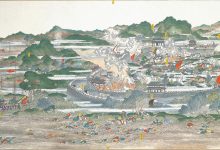The Battle of Geneva, 1602: A Pivotal Moment in the Swiss Religious Wars
The Battle of Geneva, fought in 1602, holds a significant place in the history of Switzerland, particularly in the context of the Swiss Religious Wars. The conflict marked a pivotal moment in the city’s struggle for independence, reinforcing its position within the Swiss Confederation. It was not merely a military engagement but a symbol of the determination of the Genevans to preserve their autonomy in the face of external pressures from neighboring powers, notably the House of Savoy and the Spanish Empire.
Background to the Battle: The Swiss Religious Wars
The Swiss Religious Wars were part of a broader European struggle between Catholic and Protestant factions, with Switzerland caught in the middle. The Swiss Confederation was a loose association of cantons, many of which had embraced Protestantism during the Reformation. Geneva, which had become a Protestant stronghold under the influence of John Calvin, stood at the heart of the Protestant cause in Europe.
In the late 16th century, the city was an increasingly important center of Protestantism, drawing both admiration and animosity from various Catholic powers. The House of Savoy, a noble family with territorial ambitions in the region, viewed Geneva as a key city that could bolster their influence and secure their position in the region. Likewise, Spain, a Catholic superpower at the time, had its interests in ensuring the suppression of Protestantism across Europe. These tensions would culminate in the Battle of Geneva.
The Prelude to Battle
By 1602, Geneva had become a symbol of Protestant resistance. The city was fiercely independent, governed by a mix of local bourgeois and clergy, and it had a well-established military tradition. The House of Savoy, which sought to expand its influence in the region, aimed to bring Geneva under its control. Savoy’s efforts were part of a larger Catholic strategy, backed by Spain, to curb the spread of Protestantism and reclaim lost territories.
The immediate cause of the conflict was an attempt by the Savoyards to seize Geneva. In the summer of 1602, an army led by the Savoyard commander, Charles Emmanuel I, Duke of Savoy, began its advance toward the city. The Genevans, well aware of the impending threat, rallied their forces in defense of their city.
The Battle: October 11, 1602
On the night of October 11, 1602, the Savoyard forces launched a surprise attack on the city. They had hoped to capitalize on Geneva’s weak defenses and take the city by surprise. However, the defenders, consisting of the city’s militia, led by their commanders and assisted by the Swiss mercenaries, were prepared.
The battle itself was fought at close quarters, with heavy fighting around the city walls. The Genevans, familiar with the terrain and determined to protect their city, successfully repelled the invaders. The Savoyards were unable to breach the city’s defenses, and their forces were forced to retreat.
This battle, though not large in scale by the standards of other European conflicts of the time, was a decisive victory for the defenders of Geneva. The Swiss, led by their local militias, withstood the siege and held their ground, making it clear that they would not succumb to external forces seeking to subdue their autonomy.
Aftermath and Consequences
The victory at Geneva was of great symbolic importance. Not only did it thwart the immediate threat posed by the House of Savoy, but it also solidified Geneva’s position as a key Protestant stronghold in Europe. The battle further demonstrated the resilience of the Swiss people and their commitment to maintaining their independence, especially in the face of Catholic powers like Spain and Savoy.
In the aftermath of the battle, Geneva’s victory was celebrated across the Protestant world. The defeat of the Savoyards marked the end of their immediate efforts to control the city and their broader influence in the region. This event also contributed to the long-term political stability of the city, reinforcing its commitment to the Protestant cause and its autonomy within the Swiss Confederation.
Legacy and Significance
The Battle of Geneva in 1602 is remembered as a turning point in the Swiss Religious Wars. It not only ensured the continued independence of Geneva but also helped to shape the future of the Swiss Confederation. The battle exemplified the Swiss spirit of resistance against foreign domination, and it served as a symbol of the city’s commitment to its religious and political ideals.
In the broader context of European history, the battle is often seen as one of the many local struggles that contributed to the religious and political upheavals of the era. It was a reminder that even in a time of intense religious conflict, local forces, driven by a sense of autonomy and determination, could change the course of history.
Furthermore, the Battle of Geneva remains a significant event for understanding the complex dynamics of the Swiss Religious Wars. It highlights the intersection of religion, politics, and military strategy in the shaping of Swiss national identity.
Conclusion
The Battle of Geneva in 1602 was more than just a military conflict; it was a defining moment in the city’s history and the larger narrative of the Swiss Religious Wars. It symbolized the resilience and determination of the Genevan people in their quest to preserve their independence in a volatile and religiously charged period. The victory over the House of Savoy not only ensured the survival of Geneva as a Protestant stronghold but also contributed to the continued stability of the Swiss Confederation. Today, the memory of the battle serves as a testament to the city’s legacy of self-determination and religious liberty.

